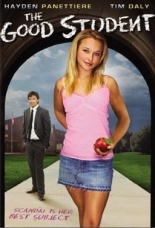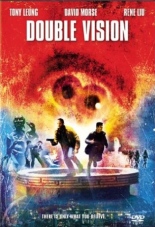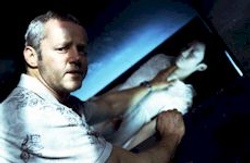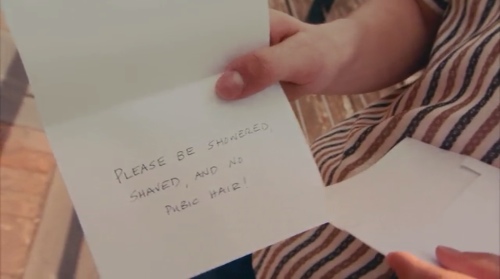
 A few years ago, my former employer decided to produce a series of videos for the smartphone market and tasked me with writing them. I threw together 25 scripts centered on the concept of the “sport” of curling (their idea, not mine), handed them in and heard nothing about the project for four months.
A few years ago, my former employer decided to produce a series of videos for the smartphone market and tasked me with writing them. I threw together 25 scripts centered on the concept of the “sport” of curling (their idea, not mine), handed them in and heard nothing about the project for four months.
Then I learned the videos were going to be directed by “exciting new talent” David Ostry, who was then at work on a feature film produced by Kevin Spacey, starring Hayden Panettiere, that cute cheerleader from Heroes. I was excited to find out my scripts were actually going to be produced, and looked forward to hearing from Ostry when he inevitably sought my feedback.
Four more months passed, and I was surprised when I was asked if I wanted to see the completed videos. My surprise turned to horror when I saw that the “exciting new talent” had managed to completely misinterpret all of my scripts, sometimes conveying the exact opposite point and tone I had intended. Adding insult to injury, the only credit that appeared in the videos was Ostry’s, completely negating my own contribution to the project.
 So you can forgive me if I approached The Good Student with a distinct bias against it. I try to never start watching a movie wanting to hate it, but in this case, I was willing to make an exception. It’s so poorly made, it’s no wonder the film took so long to be released, even with such a well-known, talented cast, including Tim Daly, William Sadler and Dan Hedaya. Despite starting out as an editor, Ostry has difficulty getting shots that cut well together and the digital-video cinematography makes the work look and feel like an ambitious home movie.
So you can forgive me if I approached The Good Student with a distinct bias against it. I try to never start watching a movie wanting to hate it, but in this case, I was willing to make an exception. It’s so poorly made, it’s no wonder the film took so long to be released, even with such a well-known, talented cast, including Tim Daly, William Sadler and Dan Hedaya. Despite starting out as an editor, Ostry has difficulty getting shots that cut well together and the digital-video cinematography makes the work look and feel like an ambitious home movie.
But its biggest flaw is its inability to maintain a consistent tone. Clearly inspired by American Beauty, it loses focus midway through and ceases to be an unsuccessful social satire in favor of being an unsuccessful thriller. But you can’t take my word for it, since I have an admitted ax to grind, which means you’ll have to judge it for yourself.
You poor, poor bastards. —Allan Mott


 If
If  The reveal of the killer proves to be anticlimactic, but then the film makes up for it by throwing a huge, steel-plated monkey wrench into the plot that really shakes things up – something I would never expect. The last act isn’t as good as the setup since the focus shifts from suspenseful to spiritual, but Chen Kuo Fu’s film as a whole is extremely well-crafted and anchored by two solid leads. —Rod Lott
The reveal of the killer proves to be anticlimactic, but then the film makes up for it by throwing a huge, steel-plated monkey wrench into the plot that really shakes things up – something I would never expect. The last act isn’t as good as the setup since the focus shifts from suspenseful to spiritual, but Chen Kuo Fu’s film as a whole is extremely well-crafted and anchored by two solid leads. —Rod Lott

 Instead, I got a fifth-rate group of stoned community theater rejects/draft-dodgers — led by “comedian” Del Close — dressed as famed mass-murderer Che Guevara, rolling around in the mud while espousing anti-war sentiments and aimlessly driving sputtering jalopies. Improvised elections are held on a train, The MC5 blares on the soundtrack, and everyone remains happily unemployable. If this is what the young people were doing while our boys were dying face-down in the Vietnam jungles, sign me up to the Ohio National Guard and hand me a bayonet!
Instead, I got a fifth-rate group of stoned community theater rejects/draft-dodgers — led by “comedian” Del Close — dressed as famed mass-murderer Che Guevara, rolling around in the mud while espousing anti-war sentiments and aimlessly driving sputtering jalopies. Improvised elections are held on a train, The MC5 blares on the soundtrack, and everyone remains happily unemployable. If this is what the young people were doing while our boys were dying face-down in the Vietnam jungles, sign me up to the Ohio National Guard and hand me a bayonet!